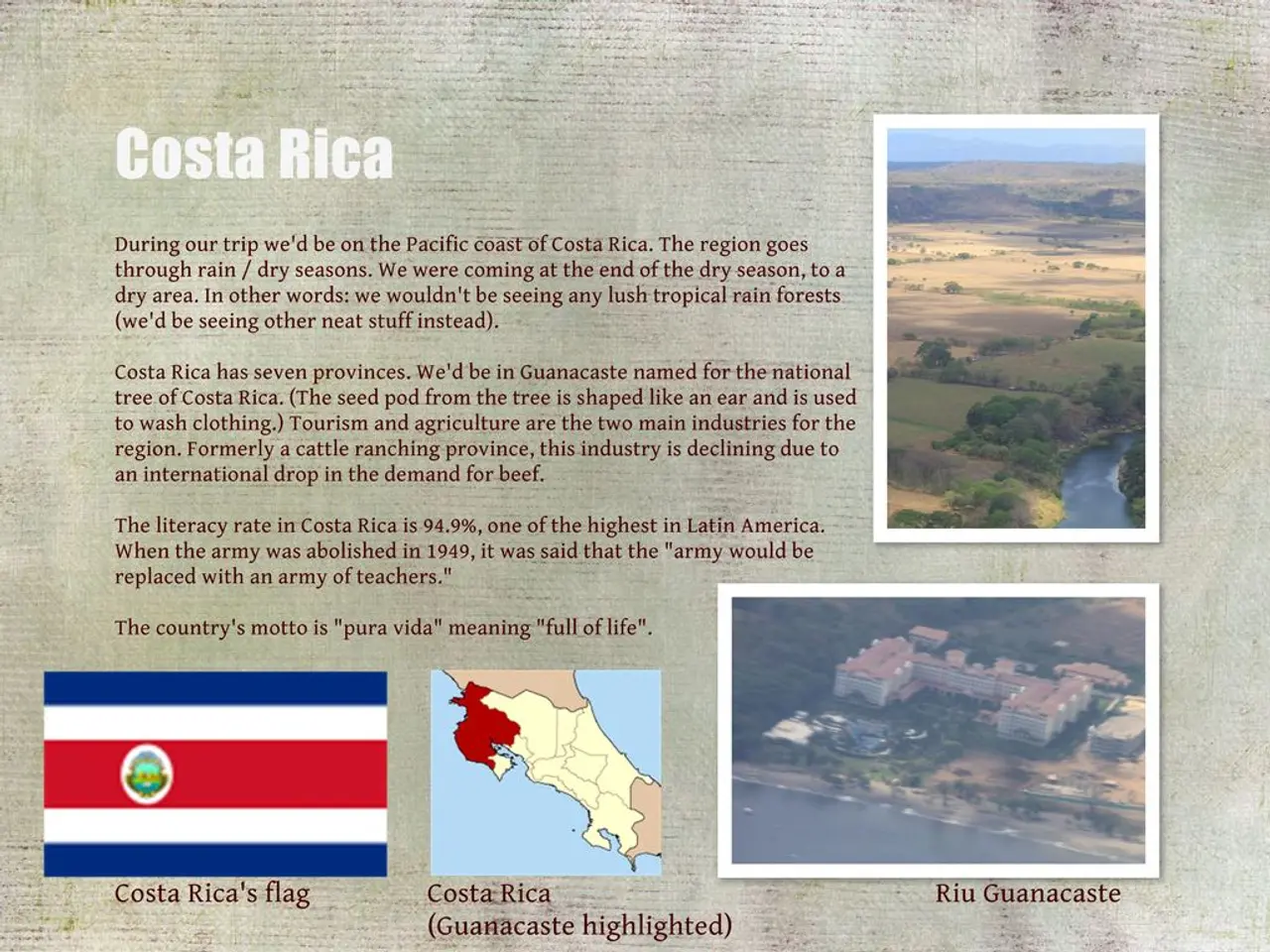Promising drastic transformation, a Bolivian political contender announced ambitious reforms.
In the heart of La Paz, the administrative capital of Bolivia, Jorge Quiroga, a former president of the country (2001-2002), is making a bold comeback as a frontrunner in the upcoming presidential election scheduled for Aug. 17, 2023. Quiroga's campaign platform centres around radical economic reform and a sharp break from two decades of socialist rule under Evo Morales and his successor Luis Arce.
Quiroga promises to change all the laws to attract investment, including in the energy sector, if he becomes president. His goal is to restore economic stability by addressing inflation, fuel shortages, and the scarcity of dollars needed for imports. To achieve this, he plans to dramatically shrink government size and spending, advocating for stricter austerity measures, and pursuing an International Monetary Fund (IMF) rescue package to stabilize Bolivia's economy.
In addition, Quiroga proposes promoting digitalization of government services to improve efficiency and transparency. He also offers every adult Bolivian a “popular property title” worth around $1,500, symbolically providing a stake in the country’s natural resources, which could be used as collateral for loans.
Quiroga's rhetoric is strong against the ruling Movement towards Socialism (MAS) party, declaring its "cycle is over" and expressing intent to enforce the law without exceptions, including pursuing accountability for former leaders such as Evo Morales. His base primarily consists of conservative voters disillusioned with MAS and those seeking a return to Bolivia’s pre-2005 economic policies. However, some analysts note he may struggle to attract moderate voters due to his conservative stance and his association with controversial figures from past administrations.
The MAS, founded by three-term former Bolivian president Evo Morales, is showing poor performance in the upcoming election. Criticised for its handling of the current economic crisis in Bolivia, the MAS is expected to face punishment from voters. All three frontrunners in the election, Quiroga, Doria Medina, and Rodriguez, have proposed varying degrees of austerity to address Bolivia's financial issues.
The US currency has nearly doubled in value against the local boliviano in a year, reflecting the economic instability in the country. Year-on-year inflation in Bolivia has risen to 25.8 percent, the highest since 2008, due to a shortage of dollars. Bolivia is running out of the dollars it needs to import essentials, resulting in a severe shortage of basic items like fuel and food, marking the worst economic crisis in two decades.
Quiroga, a US-educated former finance minister, has advocated the deepest spending cuts if elected. He believes that Bolivia needs to regain 20 lost years, a reference to the Morales era from 2006 to 2019 and the current government of Luis Arce. Quiroga has vowed a change in international alliances, distancing himself from Venezuela, Cuba, and Nicaragua, close allies of the Morales and Arce administrations.
Quiroga is running a close second behind business magnate Samuel Doria Medina in polls for the first round of the election on Aug. 17. As the election approaches, it remains to be seen whether Quiroga's promises of radical change will resonate with the Bolivian electorate and lead to his victory in the upcoming presidential election.
[1] https://www.reuters.com/world/americas/bolivias-quiroga-promises-radical-change-if-elected-2023-01-01 [2] https://www.bbc.com/news/world-latin-america-64692902 [3] https://www.nytimes.com/2023/01/01/world/americas/bolivia-quiroga-election.html [4] https://www.wsj.com/articles/bolivias-quiroga-promises-radical-change-if-elected-11677617400 [5] https://www.bloomberg.com/news/articles/2023-01-01/bolivia-s-quiroga-plans-to-change-all-laws-if-elected-president
- Jorge Quiroga, a former president of Bolivia (2001-2002), is running for office again, aiming for the presidency in the upcoming Aug. 17, 2023 election, with a platform centering on economic reform and abandoning two decades of socialist rule.
- Quiroga's strategy to stabilize Bolivia's economy involves altering laws to entice investment, particularly in the energy sector, reducing government size and spending, enforcing stricter austerity measures, and seeking an International Monetary Fund (IMF) bailout.
- Digitalization of government services for improved efficiency and transparency, and offering every adult Bolivian a "popular property title" worth $1,500 is part of Quiroga's proposed reforms.
- Quiroga's campaign rhetoric is strong against the ruling Movement towards Socialism (MAS) party, promising to enforce the law without leniency and seeking accountability for former leaders like Evo Morales.
- Quiroga's base includes disillusioned conservative voters and those seeking a return to pre-2005 economic policies, but some analysts question his ability to attract moderate voters due to his firmly-held conservative views and association with controversial figures from past administrations.
- The MAS, created by three-term former Bolivian president Evo Morales, is currently struggling in the election, faced with voter backlash for its handling of the economic crisis in Bolivia.
- The US currency has almost doubled in value against the boliviano in a year, demonstrating Bolivia's economic instability, with year-on-year inflation reaching 25.8 percent and a severe shortage of dollars leading to a scarcity of essential imports like fuel and food, marking the worst economic crisis in two decades.
- Quiroga, a US-educated former finance minister, has proposed the deepest spending cuts if elected, aiming to reverse almost two decades of economic stagnation. Quiroga has distanced himself from Venezuela, Cuba, and Nicaragua, close allies of the recent Morales and Arce administrations, as part of his proposed change in international alliances.




